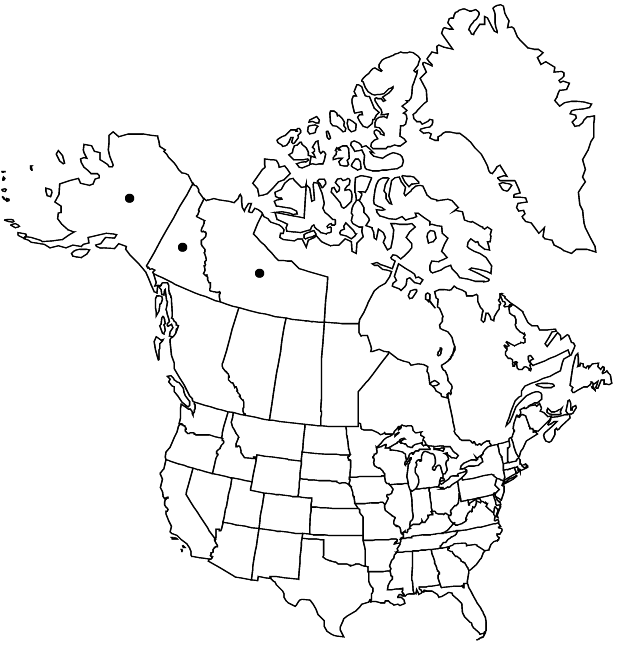Douglasia arctica
Fl. Bor.-Amer. 2: 120. 1838 ,.
Plants loosely cespitose cushions from branched caudex. Stems prostrate to ascending, with marcescent, imbricate, reddish leaves proximally and terminal, green leaf rosettes. Leaves erect, thin; blade linear to linear-lanceolate, 3–10 × 0.5–2 mm, margins entire, shortly ciliolate, hairs simple, apex acute or obtuse, usually glabrous, surfaces glabrous. Scapes to 2 mm in early anthesis, to 2–4 cm in fruit, minutely glandular and hairy, hairs branched, sometimes glabrescent. Inflorescences 1(–2)-flowered, bracteate; bracts 1(–2), ovate-lanceolate, 1–2 × 0.5–1 mm, glabrous. Pedicels absent. Flowers: calyx 3–6 × 3–4 mm, glabrous; corolla pink, white in age, limb 5–7 mm diam., lobes 2.5–3 × 1 mm, margins entire or slightly erose. 2n = 38.
Phenology: Flowering early summer.
Habitat: Stony places on tundra, alpine screes
Elevation: 0-1000 m
Distribution

N.W.T., Yukon, Alaska.
Discussion
Douglasia arctica is most common in northern Alaska and northwesternmost Canada. It can be separated from its closest relative, D. gormanii, on the basis of its looser growth habit and shortly ciliolate, otherwise glabrous leaves. Douglasia gormanii has a tight growth habit and forked and branched hairs on the leaves.
Selected References
None.